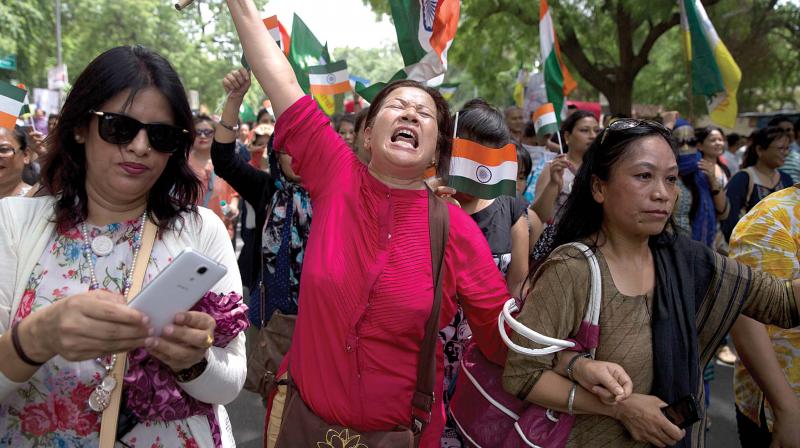It's now or never for us, say Gorkhas in Bengaluru

Bengaluru: Even as the Gorkhaland movement in Darjeeling and surrounding areas takes a toll on the everyday life of residents of the small town, tucked away into the northern part of West Bengal, Gorkhas in Bengaluru say the community will not back down.
“We believe this has been going on for too long. It looks like a now or never fight. There are atrocities being committed against our people and we support them with our whole heart. These are the people we grew up with, streets we spent the best years of our lives in. These very streets are now ablaze, strewn with wounded people,” said Shrishti Chhetri, a college student studying in Bengaluru. “Our hometown has just been disrupted! It is like life has halted. My family stays in the heart of Darjeeling, near Singamari, where a protestor was shot dead recently. The scenario is grim,” she added.
“The social media, that was the only source of news for us outside the town, has also been cut off.”The outrage started after the state proposed imposition of Bengali as a compulsory language in the curriculum.
“It was a well thought out political strategy. This is more than linguistic imperialism, this is a step towards linguistic homogeneity. It has a deeper layer. Later on, in a long-term perspective the government can claim that Bengali is spoken in Darjeeling as well. Our identity can be contested later on. Language may not be the only factor, but is certainly an important one,” explained Rinchu Dukpa.
“In spite of Darjeeling being a part of West Bengal since India’s Independence, Nepali as a language is still not recognised in the West Bengal Civil Sevice Examinations. If that doesn’t show discrimination, what does,” she asked.
Gruesome images of citizens of this small town being bludgeoned and beaten by security forces are being shared on social media. But the government is countering it. “The strength of the manpower that sides with the government is being flashed at our community,” protested Nikita, who is from Darjeeling and working at a beauty salon in Indiranagar. “Women and children are being threatened on the streets.
Videos of young boys being dragged and beaten by the police are up on the social media today, and you can clearly sense the fear in the woman’s voice taking the footage.
The Mamata Banerjee government is doing all it can to suppress the protest. My family is suffering like the rest of the community. But we are suffering for our own cause and we know we need this now,” she said.
Keyboard warriors have taken it upon themselves to show Gorkhaland on the map, she said. The demand for a separate state for the Gorkha community is much more than a politically driven agenda, it is a people’s movement, said Yogita Rai, another Gorkha residing in the city.
“We don’t identify with the Bengali community in terms of language or our culture. This isn’t about a party anymore, it is about our identity. Who are we outside our town? We want to be Indians, unlike the Kashmiris. There are no two ways about it. All we want is a place to call home. If the Nagas can have it and more recently Telangana, why not Gorkhas,” she asked.

